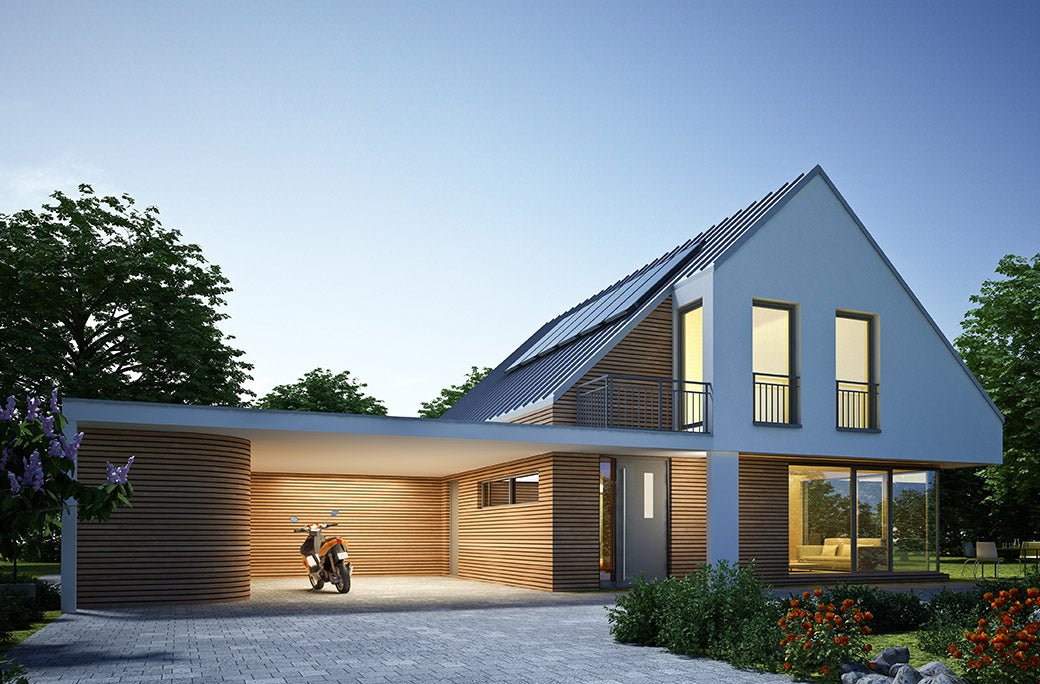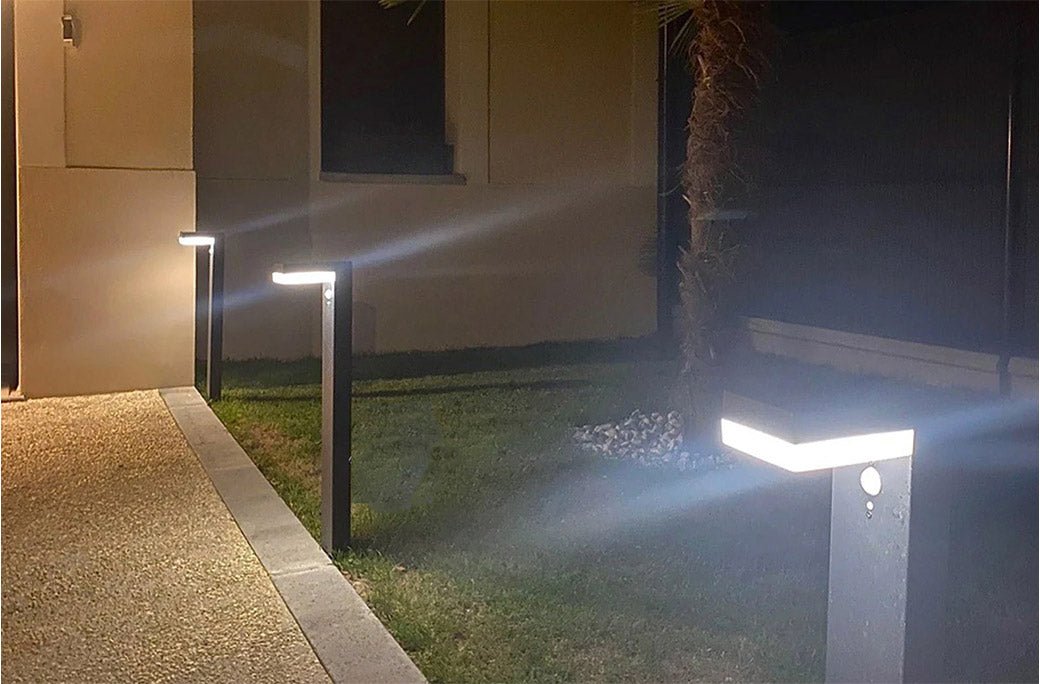Faced with environmental challenges, many French people want to adopt responsible behavior. This commitment is not confined to consumption patterns and the home. It also extends to the outdoors. So how do you go about creating an eco-friendly garden? Here are our tips for creating an eco-responsible garden.
Eco-responsible gardening: the importance of equipment
Energy-efficient LED lighting
Reducing your impact on the environment also requires energy-efficient equipment. LED technology is ideal for this. "Lumihome offers a wide range of LED outdoor lights. From 230V LED wall lights to illuminate your terrace, to bollards to mark out your pathways, you'll find the ideal solution for your garden, explains Christophe Coelho. The advantage of Lumihome luminaires is that they are very powerful. Each LED bollard is fitted with top-quality SMD components, for superior efficiency and savings. With low energy consumption, you no longer have to choose between power and savings. Discover also our models equipped with a presence detector, like our Orlando wall lamp, which allow you to light your garden only when needed."
Last but not least, Lumihome's solar LED solutions are the perfect answer to environmental challenges, using nature itself to light your home. Using the sun's inexhaustible energy has never been easier. Lumihome's powerful solar solutions provide intense lighting. Whichever luminaire you choose, it will be able to convert daylight into high-intensity electrical energy. And you don't have to have a south-facing garden or live in the sunniest regions to use Lumihome solar luminaires! Their latest-generation solar collectors provide high-quality lighting, even on cloudy days.

Ecological maintenance
A garden needs maintenance. If you want to keep your outdoor space pleasant and enjoyable, you need to ensure regular watering, weeding and mowing. There are a few things you can do to maintain your garden in an eco-responsible and environmentally-friendly way.
Optimized watering for eco-responsible exteriors
There's no need to over-water plants that don't need it. You need to make a quick inventory of your flowers and plantings to determine their water requirements. You can also opt for trees and shrubs that are adapted to your soil and region, so that they require only a reasonable amount of water. Then there are a few tricks you can use to reduce your watering. For example, if the weather forecast calls for rain, you won't need to water your garden. Water your plants, hedges and green spaces slowly, so that the water reaches the roots deep down. The drip system is ideal for this. To create an eco-responsible garden, it's vital to be smart about gardening, for example by watering early in the morning or late at night. This avoids wasting water, which can quickly evaporate under the effect of the sun's rays. You can also collect rainwater.
Responsible mowing
Having a beautiful lawn requires regular mowing, and with mowing unfortunately comes waste. Fortunately, there are ways of reusing them, such as composting them or using them as mulch in flower beds. You can also practice what's known as differentiated mowing. This involves mowing short in certain areas, such as around the terrace, and allowing the grass to grow in the more remote corners of your garden. This allows wild flowers to thrive and attract insects.
Ecological weeding
It's possible to declare war on weeds in an environmentally-friendly way. There's nothing like manual weeding. As soon as a weed appears, you pull it out. But this technique requires a great deal of reactivity on your part. You can also use natural weedkillers such as white vinegar or nettle purin. Fern manure, on the other hand, is designed to combat pests such as slugs, larvae and aphids. And if you're cooking pasta or rice, you can always use the cooking water to control weeds locally.
Natural fertilizers
Most conventional fertilizers are of chemical origin. To reduce your impact and make your garden an eco-responsible outdoor space, opt for natural, organic or organic fertilizers. You can even make your own compost to feed your plants. In this way, you kill two birds with one stone, recycling your waste and taking care of your garden at the same time.
Recycled garden furniture and sustainable equipment
If you have a garden, it's to enjoy it in fine weather. Your commitment to eco-responsibility doesn't have to compromise your comfort. For this, furniture is essential, but not just any furniture: choose recycled or environmentally-friendly furniture. To create an eco-responsible garden, avoid plastic or resin garden furniture in favor of stone or wood, for example. Wooden pallets, for example, are currently very popular and can be recycled and transformed into real garden furniture.
Finally, opt for durable garden equipment. Avoid plastic watering cans, for example, in favor of metal ones. In this respect, Lumihome fixtures perfectly meet the objectives of eco-responsible gardening, since they feature a durable design. "At Lumihome, we no longer want disposable products. Our brand is part of a committed ecological approach. That's why our entire range features an intelligent discharge system, which preserves the battery and extends its life, explains Christophe Coelho. What's more, our batteries are interchangeable, so you can enjoy your luminaire for a long time to come."
Now you know all the tips you need to make your garden a pleasant place to be, and above all, one that's kind to the planet. Don't forget to make your next purchases in full awareness of your impact on the environment.






























